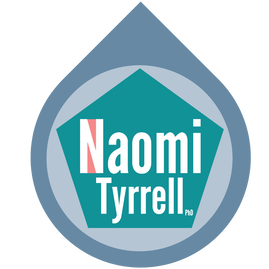
If you could have any career you want, what would it be?
One of the things that people can find difficult when they are considering their employment prospects post-PhD is not knowing what is possible! We can become so focused on our research specialism that we become an expert in something and relate everything we could do to that specific area or niche of knowledge. At this point, often the advice is to not think about your specific expertise or niche knowledge because employers won’t be interested. Often the advice is to focus on your skills and experience. This is valid advice but…before we consider that aspect of developing an alt-ac careers, let’s just explore being an expert and being and entrepreneur in the alt-ac landscape.
Being an expert
Now, it is great to be an expert in something! No one else in the world is likely to know as much as you do about what your PhD is focused on – that’s why you’re getting a PhD in it! You can develop yourself as a thought leader using your knowledge and then sell your services as a thought leader. This can grow into something massive or stay small-scale, there is a lot of potential with thought leadership and people transitioning out of academia are really well-placed to grow in this sphere. I have done this on a small-scale, using my research knowledge to help families move home – see naomityrrellphd.com. I saw a gap in the market and knew I could use my research knowledge to help people. Bingo- a side hustle! It’s not my main job but I love it and brings me additional income. For more information on being a thought leader I recommend this Roostervane blog: https://roostervane.com/thought-leader/
Being an entrepreneur
When thinking about your transition out of academia you may want to think creatively and consider what your niche knowledge is, as well as your specific skills. Sometimes there is a really obvious gap that you could fill, sometimes it takes a bit of creative thinking. I recommend that you listen to the podcast with Dr Seb Stevens for some inspiration on this.
It may be that you feel really passionate about something but you don’t feel that you could develop it into a business. If you get to that point then do some market research (using your research skills again!) and also connect with all of the local business support groups that there are across the UK. Your local library is a good place to start as they often have Business and IP Centres (even the small library in my very small town does!); your local Council and Chamber of Commerce can be helpful in giving free advice or information about what start-up grants are available for businesses in your area. There often are free business coaching and mentoring schemes too. One very well-known one is the School for Social Entrepreneurs: The School for Social Entrepreneurs (the-sse.org).
Being an employee
This is probably the most common route people consider when transitioning out of academia and most people are employed by an organisation of some sort. There are some straightforward steps that you can follow if you are wondering job you can do (and what career you can build) beyond academia.
Do some deep-thinking. Have your goals and dreams changed since starting your PhD? That’s absolutely fine. If you can map out what they are now, it will help you to rule certain roles, sectors and organisations ‘in’ or ‘out’ when you start thinking about job applications or building a business yourself.
One simple and helpful model that you can use as a starting point is the GROW model.
G – Goal setting
R – Reality
O – Options
W – Way forward
Set some goals (some people prefer to say aims, dreams, foci – whatever you feel fits you best is fine!). Then think about where are you at right now. What is your current reality and how are you feeling about it? Is there anything that you would like to change? How can those things be changed? What power do you have/could you build to change them? Ask yourself where you want to be in a year’s time and then in five years’ time? What do you want to have accomplished? How will it feel to have accomplished this?
Being Alt-Ac
One of the reasons it can feel so hard to transition out of academia is because many of us live and breathe our PhDs. It becomes part of us, a big part of who we feel we are in many cases. If we had our heart set on an academic career post-PhD, it can feel really difficult to ‘give up’ on that idea/dream.
I don’t want to underestimate the impact that transitioning out of academia can have on our sense of identity, there are quite a few personal stories out there on social media where people document their feelings of grief, loss, sadness and also anger. However, I would encourage you to think about how it would feel not to be an academic at whatever stage of your PhD (or Post Doc) you are at the moment.
You may feel really comfortable with the idea of being an academic and that’s fine; until maybe it’s not. If you don’t secure the ‘holy grail’ of the permanent academic position (or even if you do!), or you don’t find work that you find fulfilling in an institution in which you feel treated well, what could you do? How will you feel? If you can develop an alt-ac network to see what careers people build then you are keeping your options open. You might be surprised – you might find that being alt-ac is more preferable to be an academic! Or you may find that you will always feel like being an academic is a big part of your identity, it’s just you don’t currently (or ever) work in academia.
James Clear, the author of the huge bestseller ‘Atomic Habits’, says a really helpful thing in relation to identity, and I think it is really helpful when thinking about alt-ac transitions and the difficulty that some people feel when leaving academia. I’ll leave you to ponder it:
‘Your identity emerges out of your habits… The more you repeat a behaviour, the more you reinforce the identity associated with that behaviour…Whatever your identity is right now, you only believe it because you have proof of it.’

